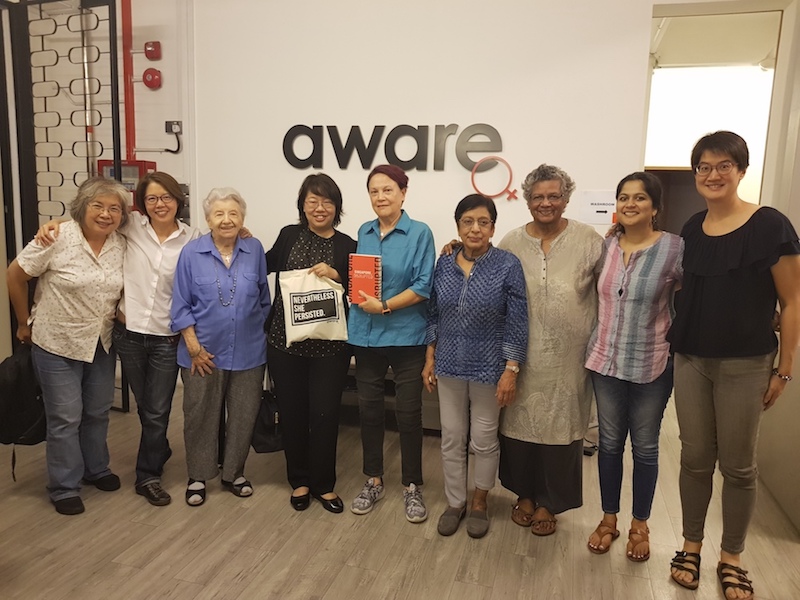-
Advocacy Theme
-
Tags
- Abortion
- Adoption
- Caregiving
- CEDAW
- Disability
- Domestic Violence
- Domestic Workers
- Harassment
- Healthcare
- Housing
- International/Regional Work
- Maintenance
- Media
- Migrant Spouses
- Migrant Workers
- Muslim Law
- National budget
- Parental Leave
- Parenthood
- Polygamy
- Population
- Race and religion
- Sexual Violence
- Sexuality Education
- Single Parents
- Social Support
- Sterilisation
- Women's Charter
A Recap: Singapore Disrupted; A Fireside Chat with Chua Mui Hoong & Margaret Thomas
November 27th, 2018 | News, Poverty and Inequality, Views
Written by Nanthini d/o T Sambanthan, AWARE intern

Author and editor for The Straits Times Chua Mui Hoong held a talk at AWARE on 7 November to share her thoughts on inequality in Singapore, as discussed in her latest book, Singapore, Disrupted. Together with Margaret Thomas, AWARE’s current President, they explored how inequality manifests in Singapore and what should be done to eradicate it.
Margaret Thomas kicked off the session by diving into the question of Ms Chua’s motivation behind Singapore, Disrupted. Ms Chua pointed to her experience as a columnist, where her interest in inequality was further heightened by what she saw as the growing divide between ‘ordinary’ Singaporeans and the ‘elite’ in society. Growing up as the daughter of low-income hawkers herself, she was troubled by this as she felt that it would end up being an existential threat for meritocratic Singapore.
She zeroed in on ‘elite fragmentation’, a core theme in her book. According to Ms Chua, this has become much more noticeable since 2011, especially in terms of former members of the Singaporean political establishment challenging long-held policies, such as current Ambassador–at-Large Professor Tommy Koh’s recent remarks which urged the repeal of Section 377A of the Penal code.
Ms Chua pointed out that Singapore’s founding ideal of meritocracy may have inadvertently contributed to the current widening inequality. The ‘Singapore Dream’, which was the dream of social mobility, is an issue that goes right to the “heart of Singapore”. For her, the current idea of meritocracy carries with it troubling notions of morality – if one does well, it’s due to them being hardworking, if one does badly however, it means they are lazy and morally inferior. This perspective ignores the structural reasons behind one’s success or failures (she cites the alumni admission and affiliation schemes in schools). In this regard, Singapore seems to be a victim of its own successes.
Emphasising on the need to be “optimistic”, Ms Chua ended with a vision for Singapore: “Singapore is currently at a crossroads, and if we want to succeed, we need a bold vision and to jump out of the future, instead if continuing to wallow in an increasingly toxic brew of elite fragmentation and fraying consensus.”
Singapore, Disrupted can be purchased for $27.94 here.



